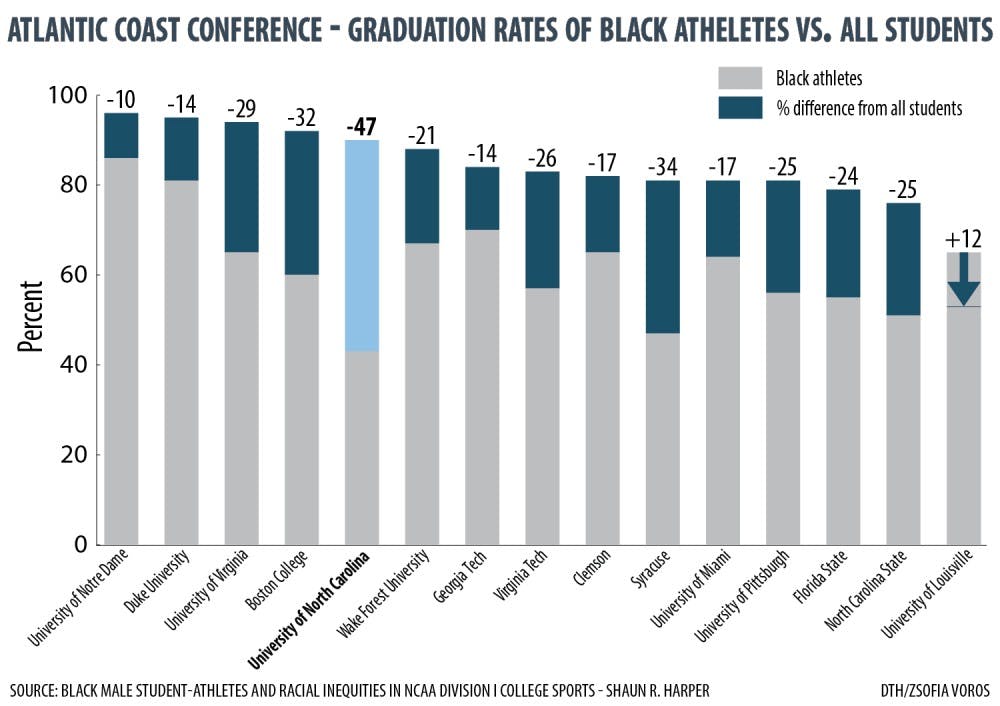UNC has graduated Black male student-athletes at the 10th lowest rate among 65 major universities across the nation in recent years, according to a recent study.
The study, conducted by executive director of the University of Southern California’s Race and Equity Center Shaun R. Harper, sparked discussion at last month’s Faculty Athletics Committee meeting. Athletic Director Bubba Cunningham said the University has a challenge.
“I think part of the discussion was, ‘Are we doing enough?’” Cunningham said. “You know, there’s still a gap. Even if our rates get better, there will still be a fairly significant gap.”
Harper’s study assessed the six-year graduation rates of Black male student-athletes at every Power Five conference university, which are the primary revenue-boosting universities in the NCAA. That data was drawn from the four undergraduate classes that entered these universities from 2007 to 2010.
UNC had the lowest graduation rate for Black male student-athletes of any university in the Atlantic Coast Conference, at 43 percent. In contrast, UNC had the fifth highest graduation rate when looking at all undergraduates during that period, at 90 percent. This gap between graduation of Black male student-athletes and all students was the largest in the ACC and the fourth largest in the nation.
During the time period the study drew its data from, UNC was in the midst of an investigation and national media scrutiny over allegations of fake classes being taken by student-athletes. Cunningham said this played into the study’s findings.
“A lot of them didn’t finish, for a variety of reasons,” Cunningham said. “One, that we had our challenges with the NCAA, with agents and amateurism. And we had some academic issues at the same time.”
Harper’s study posed that low graduation rates for Black male student-athletes across all universities are rooted in deeper problems. He cited research that found a pattern of unequal academic preparation coming into college between Black and white student-athletes, with Black students being recruited from less prestigious, poorly resourced high schools at a higher rate.
Harper also related the issue in the modern day to problems that have persisted for generations. He cited previous works stating that Black male student-athletes face unfair assumptions of being “dumb jocks” while also facing racist stereotypes of intellectual inferiority from their peers.




